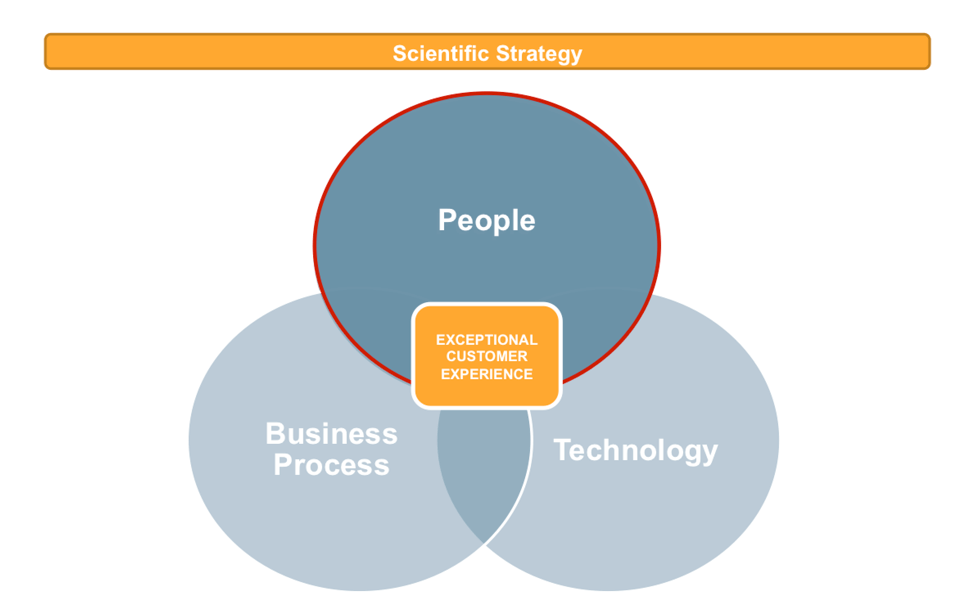Blog
3 Ways to Reimagine KOL Engagement
Aug 09, 2017 | Jennifer Vernazza
Aug 09, 2017 | Jennifer Vernazza
Ms. Vernazza contributed to this article in her personal capacity. The views expressed are her own and do not necessarily reflect the views of Sanofi or Sanofi Genzyme.
With medical affairs’ shift to a critical strategic function, the role is seeing tremendous growth – medical science liaison opportunities alone are expected to grow by 20% this year1. However, this change also demands new skill sets and competencies. As the HCP-facing branch of medical, field teams are at the forefront. Today’s MSLs are essentially the CEOs of their territory, and a key local resource as the rare disease space continues to grow.
As MSL roles grow, companies can refine their approach to KOL engagement and MSL enablement and learn new ways to approach some relevant key areas – including the MSL role, digital strategy, and the building blocks of an effective field medical function.
Changing the MSL Role
MSL teams are expanding because they are increasingly relied upon as both the internal and external expert for the diseases they cover. Much of their time is spent working with and training internal sales, marketing and R&D teams on the medical education around these diseases. They can also be responsible for understanding the healthcare landscape, spending hours of prep time researching the publications, recent clinical trials, and scientific interests of key stakeholders. Beyond serving as an internal scientific resource, MSLs can be the voice of the HCP back to the company. This data generation is a unique resource that MSLs can deliver.
Cultivating Digital Savvy
More and more, digital and technology savvy is a core distinguishing factor of an effective MSL. As new tools emerge, such as medical-specific multichannel CRM, eMSL, MSL on-demand, and virtual meetings and events, MSLs are expected to be proficient in these technologies. Moreover, leading MSLs are helping to shape innovative use cases and digital strategy. Reliance on paper-based processes is declining as MSLs start realizing the benefits of leveraging technology to break down silos and improve transparency.

To meet the expanding demands of KOL engagement, medical affairs departments are rethinking how they engage, their core technologies and processes, and the core competencies of their departments.
Medical affairs will also need to have a more structured approach in planning for KOL engagements, as HCP time is limited and valuable. So leveraging HCP information captured in CRM, along with other external data, is crucial to tailoring communication. For example, we are now leveraging stakeholder data to segment thought leaders in a new and different way so that “rising stars” can be identified. This can lead to new relationships that possibly would have been missed entirely.
Additionally, the process of delivering scientific statements will also change as MSLs use iPads and other mobile devices to augment and capture feedback during face-to-face interactions. And even as access challenges proliferate, one can see a counter-trend of HCPs reaching out directly to MSLs, enabled by emerging virtual meeting and MSL on-demand technologies. This requires a mindset shift, but as seen consistently in KOL surveys, timely responses are extremely valuable to HCPs who have to make quick decisions about patient care. Instead of waiting for an MSL to visit, HCPs will more proactively reach out to get information these days – and expect to receive the right answer, regardless of channel.
Finally, the process of reporting back to the company with key field clinical insights and synthesizing these learnings will continue to evolve. Integrating field medical-derived insights with data from clinical trials and real-world evidence promises to be very powerful, and will ultimately improve outcomes.
Developing a Strategic Mindset
In addition to a scientific knowledge foundation, the capabilities to look for in MSLs are soft skill focused, such strong business acumen and emotional intelligence, sound judgment, integrity, self-motivation, and learning agility. They must also possess an entrepreneurial spirit and leadership presence, and be able to tell a compelling story with scientific data. MSLs are essentially managing their own territory like a mini-business so need to be able to think creatively, while strictly adhering to compliance guidelines and internal policies.
Within life sciences, strategic development and commercialization cannot fail to account for the value and insight medical affairs delivers. In my next post, I’ll explore how one can design a change management plan, and progress toward a vision of a fully empowered medical affairs function.
1 “8 Reasons MSL Opportunities will Grow in 2017,” MSL Society.